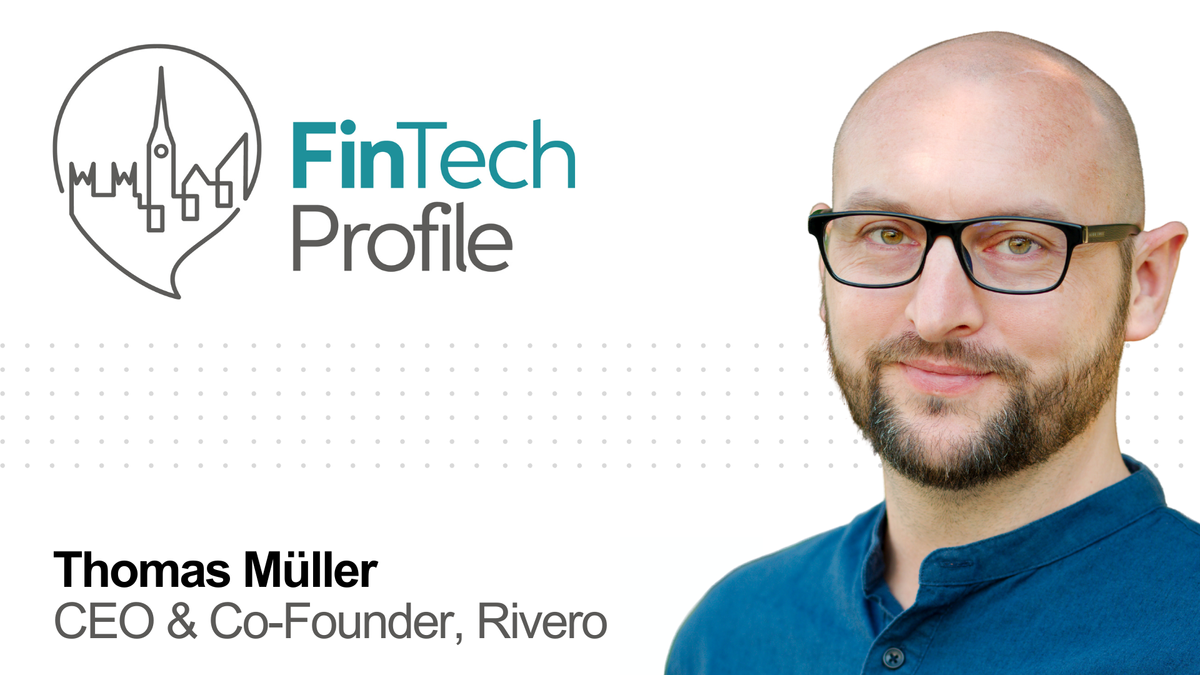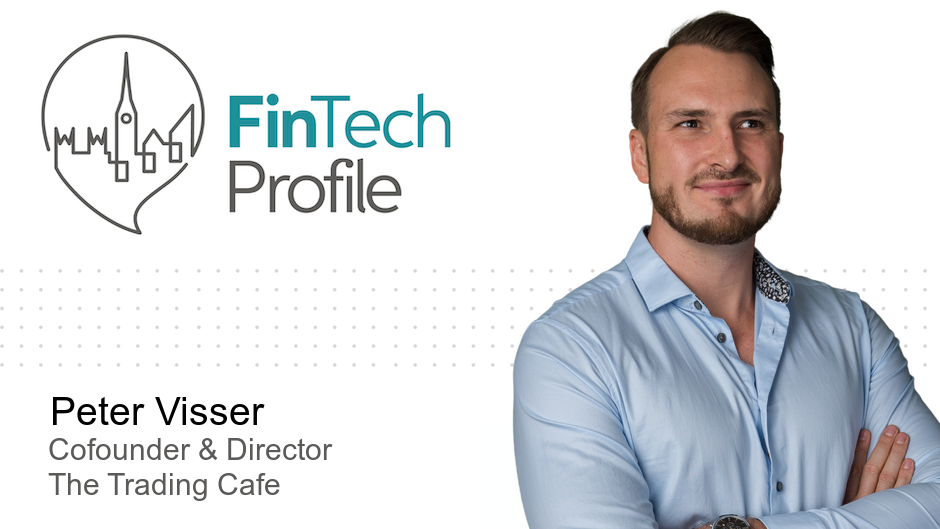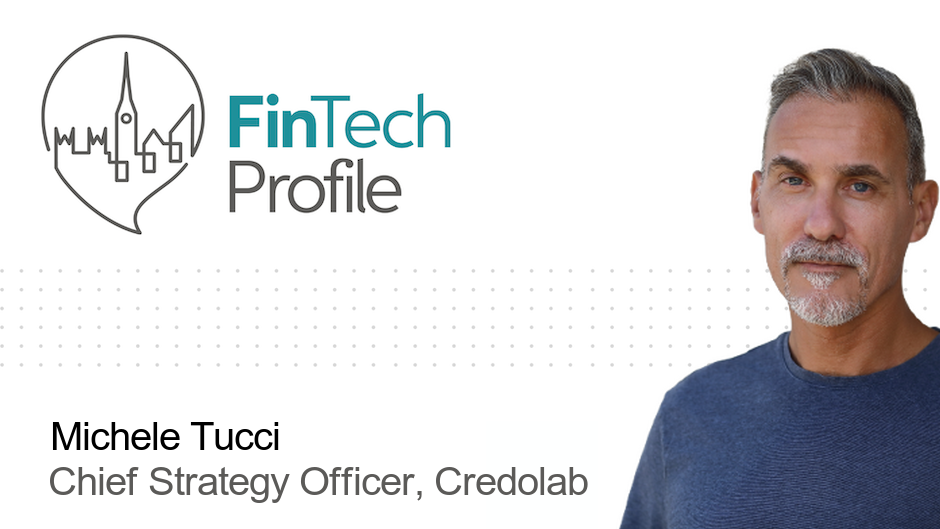Thomas Müller, CEO & Co-Founder, Rivero

Today we're meeting Thomas Müller, CEO & Co-Founder of card payments specialist Rivero.
Over to you Thomas. My questions are in bold.
Who are you and what's your background?
My name is Thomas Müller, and I am the CEO and co-founder of Rivero, a fintech company specialising in software-as-a-service (SaaS) solutions for fraud recovery, dispute management, and payment scheme compliance for banks.
I co-founded Rivero in 2018 with Fatemeh Nikayin, PhD, who now serves as our Chief Growth Officer. Over the years, we have steadily grown Rivero from a start-up into a scale-up, with the ambition of establishing it as a global leader in the payments operations domain.
As a former Chief Information Security Officer at one of Switzerland’s largest card issuers, I bring extensive experience in security, product design, and software engineering. During my career, I have led digital transformation initiatives, authentication projects, and API product management. I have also contributed to the launch of several mobile payment wallets and spearheaded an award-winning information security campaign.
What is your job title and what are your general responsibilities?
When we founded Rivero, I took on the responsibility of building the initial versions of our products and leading the product and engineering teams.
My goal was to develop solutions that are unique and that enabled banks to provide best-in-class services to their customers. To this day, I remain closely involved with our developers, working to create new innovative features for our products that add value to the banking sector and enhance our existing product portfolio.
Beyond product development, my role encompasses significant business development, including meeting with our banking partners to understand their current SaaS needs and identifying how we can best support them.
Can you give us an overview of your business?
Rivero is a fast-growing fintech company specialising in modernising and streamlining payment operations for banks. We currently offer two live products, Kajo and Amiko, which are being used by several banks and card issuers across Europe.
- Kajo is the only solution on the market specifically designed to ensure card scheme compliance. It enables banks to efficiently manage compliance with payment networks, disseminate payment knowledge throughout their organisations, and reduce the risk of non-compliance.
- Amiko is the only SaaS solution that optimises the entire fraud recovery and dispute process. It allows banks to handle these processes more efficiently while enhancing the customer experience. With its automation and smart user guidance, Amiko empowers issuing banks to deliver faster fraud recovery and dispute resolutions for their customers, even during times of high dispute volumes.
Tell us how you are funded?
Rivero was founded using the personal finances of myself and Fatemeh, alongside contributions from a few angel investors who believed in our vision. After a few years, we successfully broke even on this initial investment. This milestone set the stage for our Series A funding round, which we completed in January 2024, raising USD $7 million.
The Series A investment has driven our global expansion, enabling us to accelerate the expansion beyond our initial home market Switzerland. The round was led by 6 Degrees Capital and Inference Partners, with additional participation from Kraken Ventures, Seed X Liechtenstein, and the venture arm of PostFinance. We also secured further angel investment, including support from Robert Kraal, the former COO of Adyen.
What’s the origin story? Why did you start the company? To solve what problems?
In both my and Fatemeh’s previous roles, we gained insight into the back-office of numerous banks and observed how inefficient certain processes were. We identified a clear need for modernisation in the market, which became the foundation of our vision for Rivero.
One of the primary challenges we noticed was the rising cost of payment operations due to manual and often analogue processes, particularly in fraud recovery, dispute management, and scheme compliance management. These outdated methods require significant resources just to maintain the status quo, leaving banks struggling to manage escalating costs effectively.
At Rivero, we address these challenges by providing modern solutions that enable banks to achieve operational excellence. Our aim is to help banks to streamline these processes and to reduce costs, helping them transition to more efficient and automated systems.
Who are your target customers? What’s your revenue model?
Rivero’s target customers are primarily banks and card issuers who provide payment cards to consumers. Both of our products operate on an annual SaaS fee model, with pricing tailored to the client’s size and the number of payment networks they wish to integrate with our solutions.
If you had a magic wand, what one thing would you change in the banking and/or FinTech sector?
I want to change how banks approach partnerships with B2B fintechs. Collaborating with banks is often challenging for fintechs due to the complex regulatory environments in which banks operate. I believe banking regulations should better accommodate the collaborative nature of these partnerships, making it easier for banks and fintechs to work together.
Currently, fintech companies are often treated as secondary to the banks they partner with, with an expectation that they must adhere to the same regulatory standards. While this assumption is understandable, it frequently results in fintechs being subjected to compliance requirements that are not relevant to their operations. This unnecessarily slows down onboarding and can shift focus away from building great products.
For instance, compliance with the new DORA regulation requires banks to complete extensive catalogues of requirements. These same requirements are often imposed on fintech partners, regardless of whether they process information or operate systems that DORA aims to protect. Many legal teams within banks take a blanket approach, applying compliance requirements uniformly across all suppliers to streamline their internal processes. However, for fintechs—particularly those offering SaaS solutions—this often means dedicating significant time and resources to meet regulations that are not applicable to them, creating avoidable inefficiencies and delays.
If I had a magic wand, I would wish for a more nuanced approach to regulatory compliance —one that not only saves valuable resources but also encourages stronger, more productive partnerships between banks and fintechs.
What is your message for the larger players in the Financial Services marketplace?
To my fellow C-suite executives, the 2020s have seen a positive shift towards open collaboration between banks and B2B technology providers, including fintechs and other innovators. While banking services must remain the top priority, this does not preclude banks from offering compelling technology products to their customers. In fact, the best way to achieve this is by partnering with B2B fintechs.
My advice to decision-makers at banks is to move away from relying on a ‘one-size-fits-all’ technology provider and instead embrace a best-in-breed approach. By integrating multiple specialised B2B SaaS solutions into their service landscape, banks can optimise resource efficiency while achieving superior results and greater flexibility in the long term. Though this approach may not always be the simplest, it often proves to be the most effective.
Where do you get your Financial Services/FinTech industry news from?
At Rivero, we have a dedicated industry news chat that ensures our team stays updated on the latest developments. Personally, I rely heavily on social media platforms like X and LinkedIn for news, as I imagine many people do in today’s digital age. Among traditional trade publications, Finextra is my go-to. Their well-organised coverage of industry news makes it an excellent source of information.
I also keep a close eye on developments from VISA and Mastercard. As Rivero is a VISA Fintech Connect partner, we receive regular updates through their newsletters and email blasts. Additionally, we are members of the UK Payments Association, which provides similar news distributions, helping us stay informed about the latest trends and initiatives in the payments industry.
Can you list 3 people you rate from the FinTech and/or Financial Services sector that we should be following on LinkedIn, and why? (Please list their LinkedIn profile and a quick description, e.g. Ewan MacLeod, top man from FinTech Profile, http://www.linkedin.com/in/ewanmacleod)
- Tom Blomfield, former CEO of Monzo Bank. He’s primarily active as an investor right now and provides a lot of valuable insight for any business looking for an investment.
- Anne Boden, founder of Starling Bank. Everyone in this sector is familiar with Anne. She’s a massive influencer and it's well deserved given her success. It’s always interesting hearing her thoughts on current fintech trends.
- Even Walser, formerly of GoCardless. We’re working with Evan as one of our advisors and he is a great source of information on everything related to the go-to-market of a B2B company and the fintech space in general.
What FinTech services (and/or apps) do you personally use?
Living in Switzerland, I don’t have access to every neobank, but I hold accounts with those that are available to me. I use Revolut and Wise, which are two of the most globally recognised, but also utilise a local challenger bank called Yuh, which offers a comprehensive B2C banking service similar to Revolut. For stocks and trading, I’ve used Saxo Bank, and for long-term savings, such as my pension, I rely on VIAC.
Naturally, I also use the services of the banks that Rivero partners with. Experiencing our partners’ solutions first-hand is the best way to truly understand their offerings.
What’s the best new FinTech product or service you’ve seen recently?
I have been fairly impressed with Trade Republic, and the card they launched recently. They handled the launch in a really smart way, providing cash back benefits to those who signed up. The card is also made of metal with a reflective sheen that I think looks quite cool. It’s a shame that I can’t use it myself though, as it is not available in Switzerland yet.
Finally, let's talk predictions. What trends do you think are going to define the next few years in the FinTech sector?
The obvious answer is AI and its implications. AI is already transforming every sector, not just fintech, and its influence will continue to grow. Personally, I expect all aspects of tech to adopt some form of AI and machine learning solutions in the near future.
On the business side, I believe banks will persist in their digitisation journeys, but that their focus will shift inward. In the past, digitisation efforts were primarily customer-facing, aimed at modernising the user experience to avoid appearing outdated. However, much of this was a facade; while customer portals became digital, the backend processes often remained analogue. Over the next five years, we’ll see greater efforts to digitise these behind-the-scenes operations, transforming banks into primarily digital entities. This shift will help protect their margins by reducing the costs associated with legacy systems.
Simultaneously, there will be a rise in fintechs addressing back-office issues in banking. While these solutions may lack the allure of customer-facing products, they are crucial, offering significant potential for profitability for both established fintechs and start-ups.
Thomas, thank you so much for taking the time to participate!
Find out more about Thomas Müller on LinkedIn and visit his company Rivero online at https://rivero.tech/.
Note: You can also read Dr Fatemeh Nikayin, PhD's FinTech Profile interview online here.




